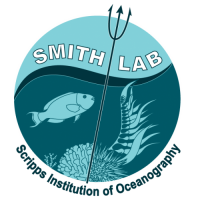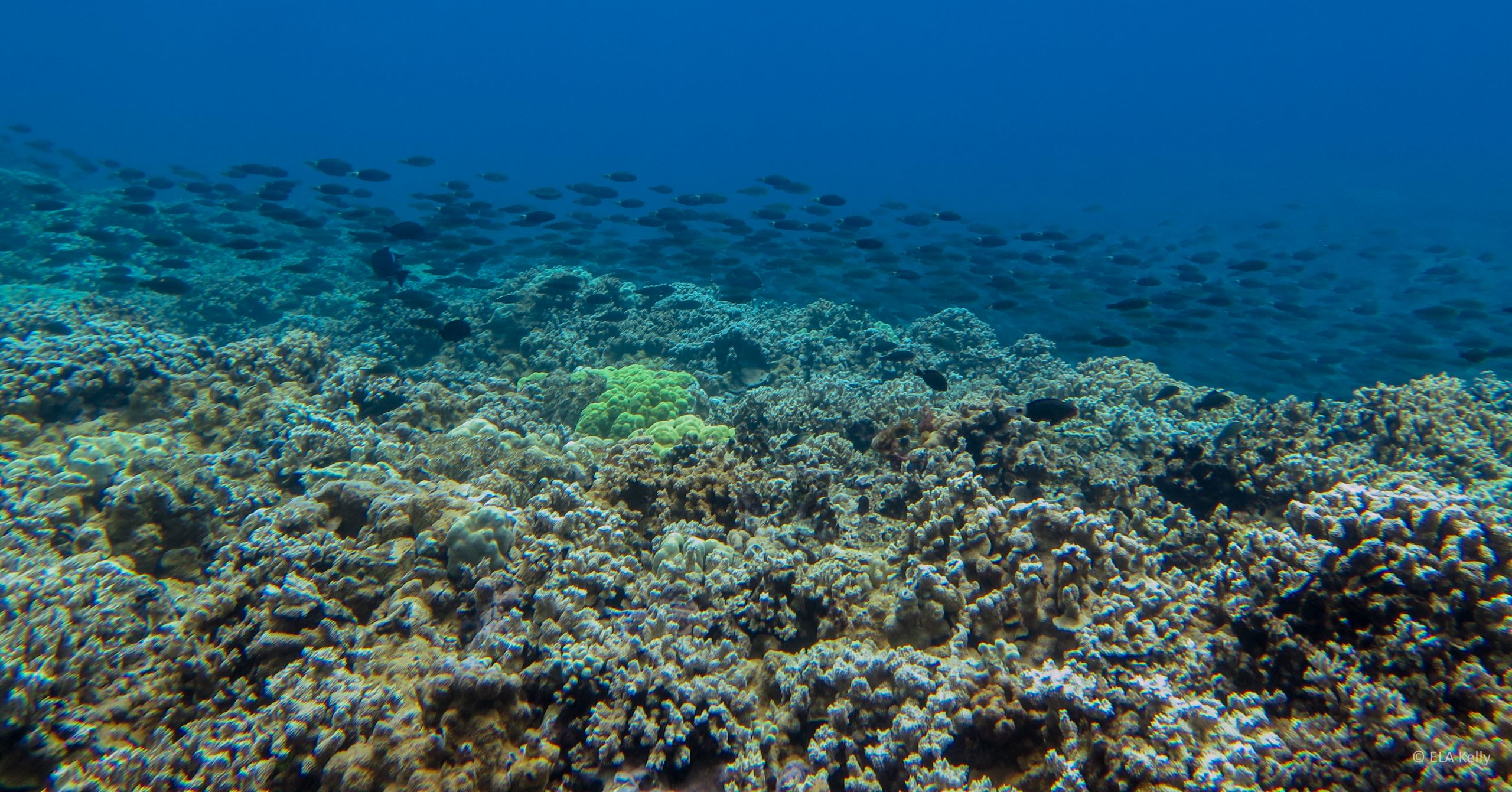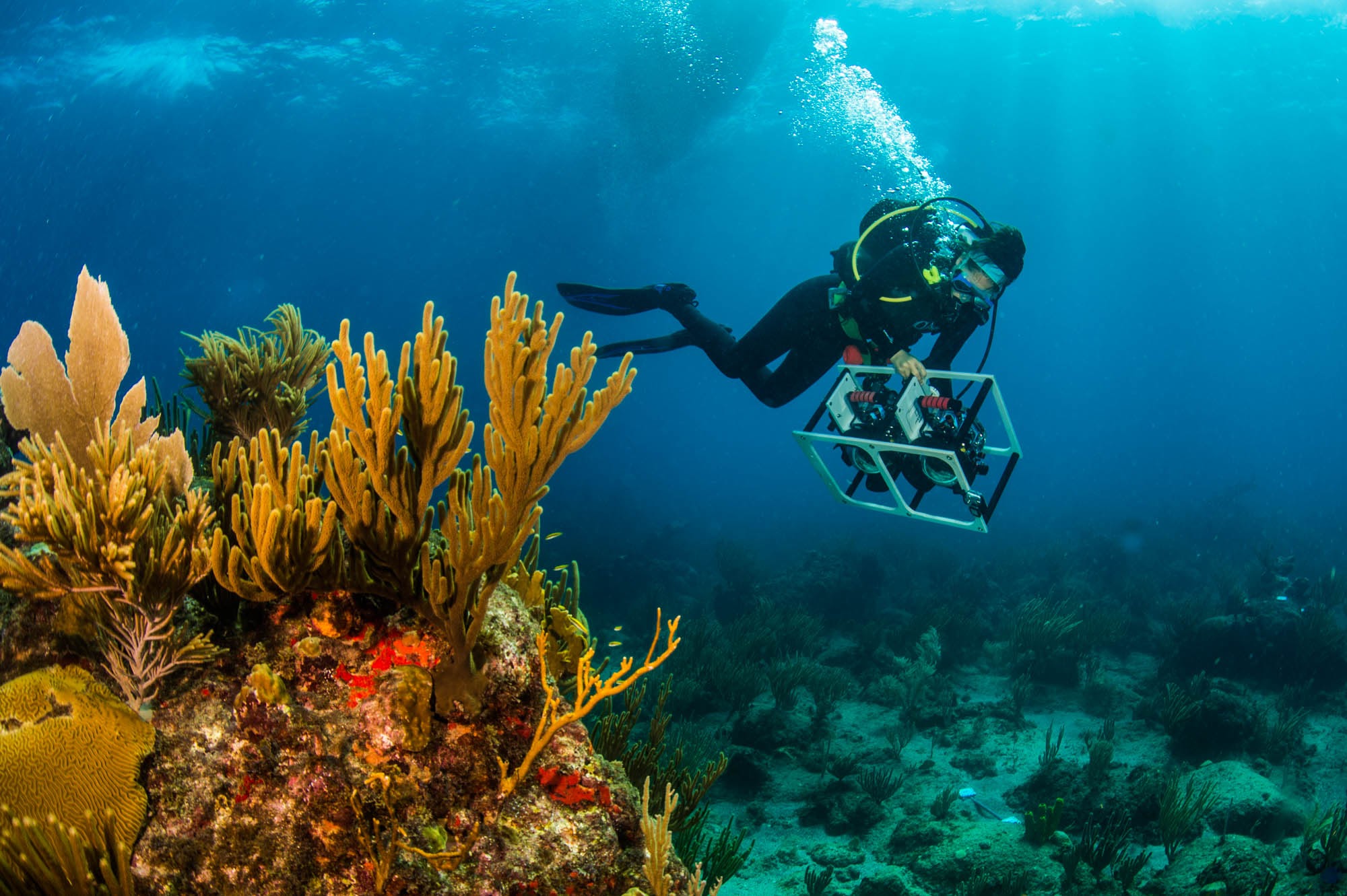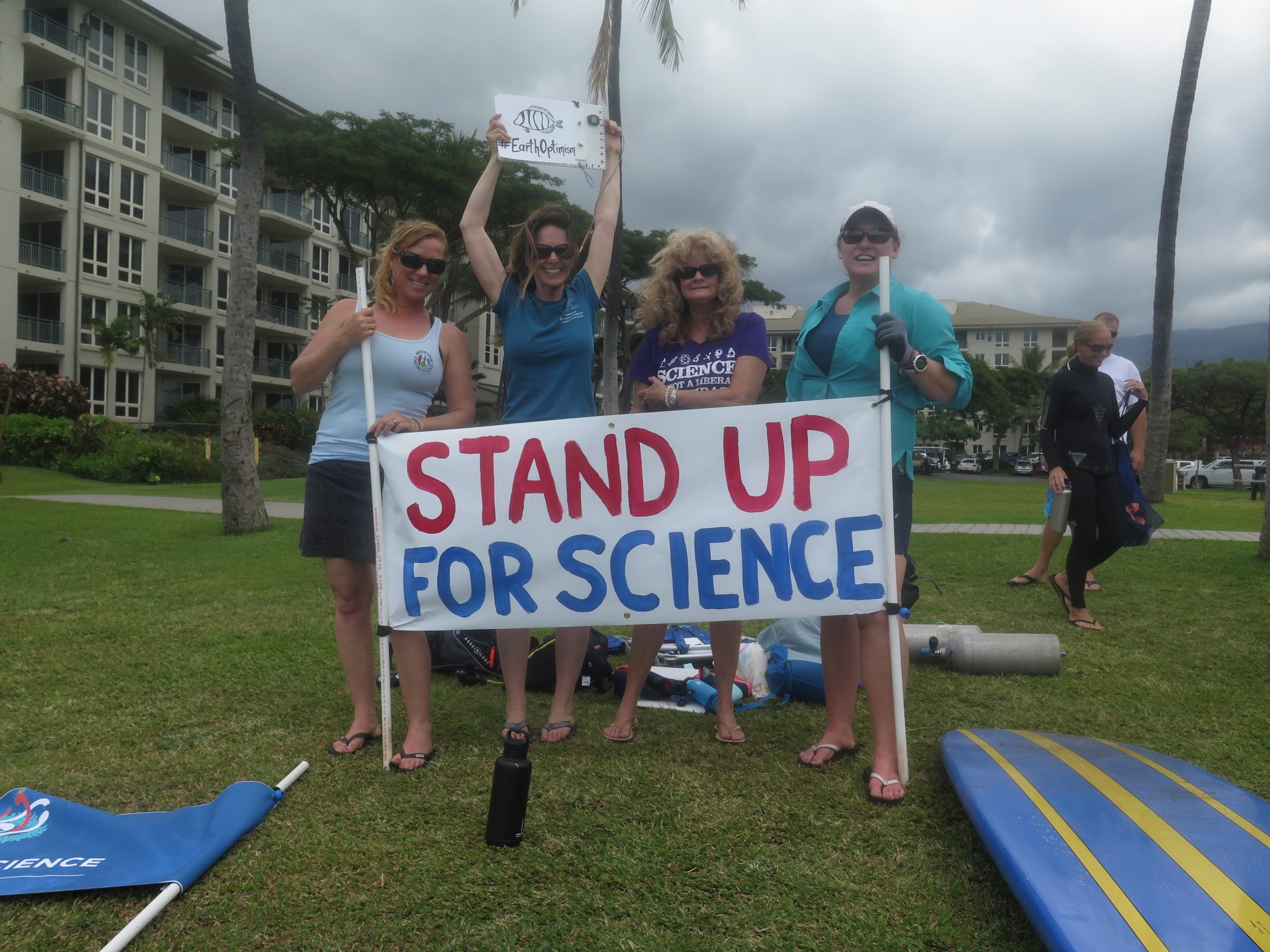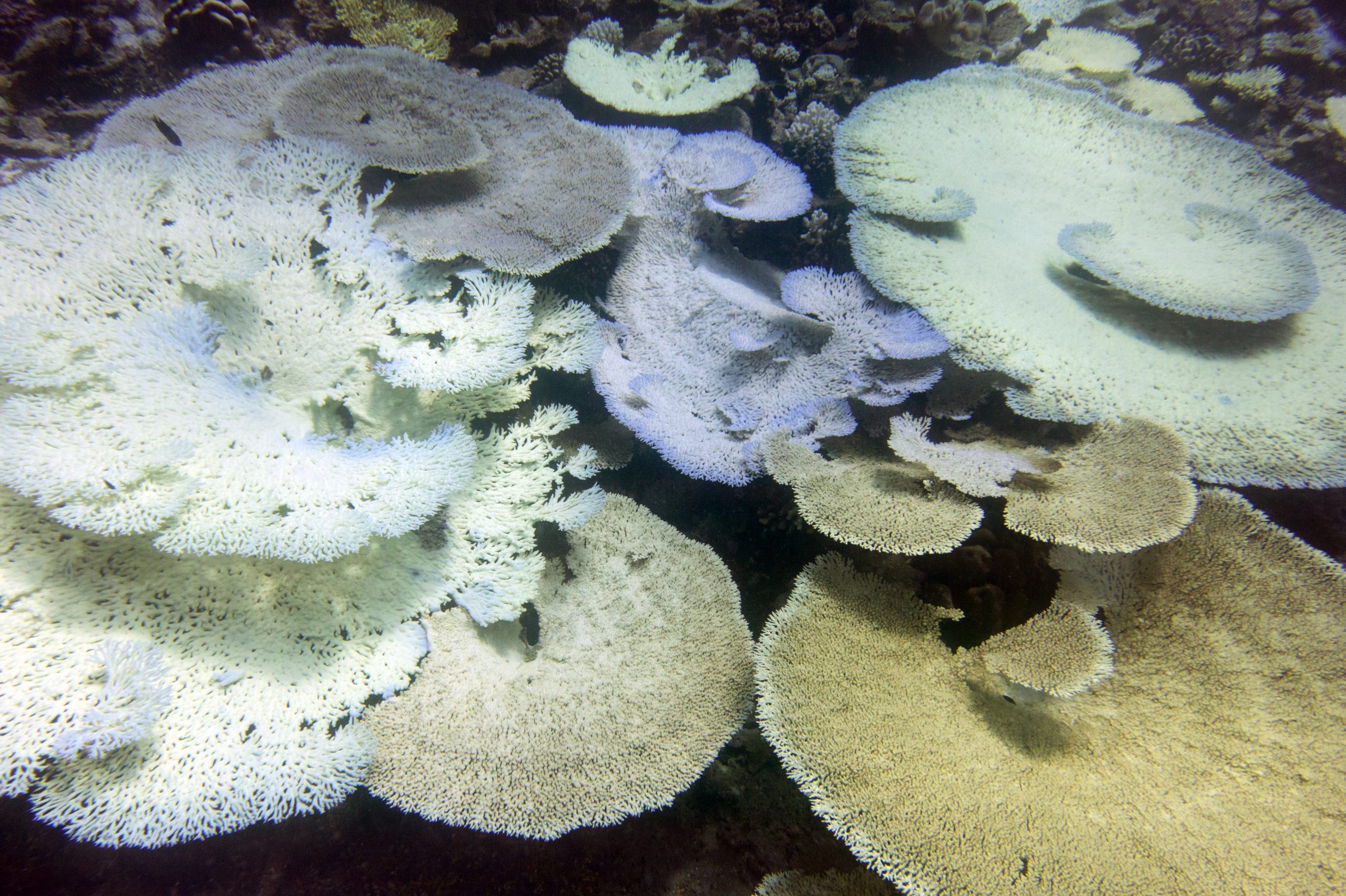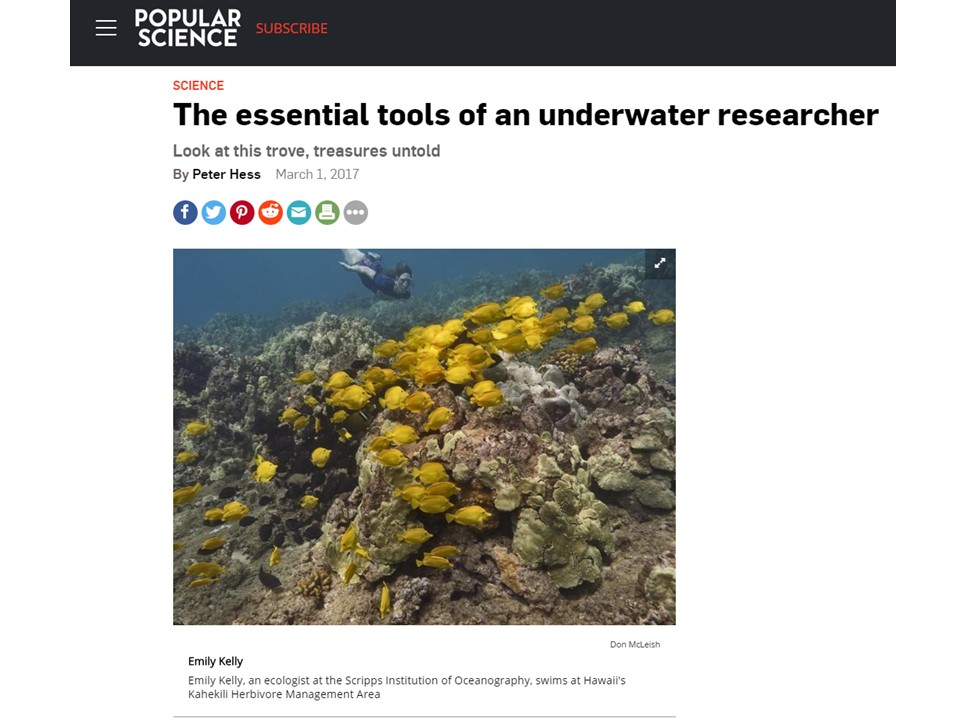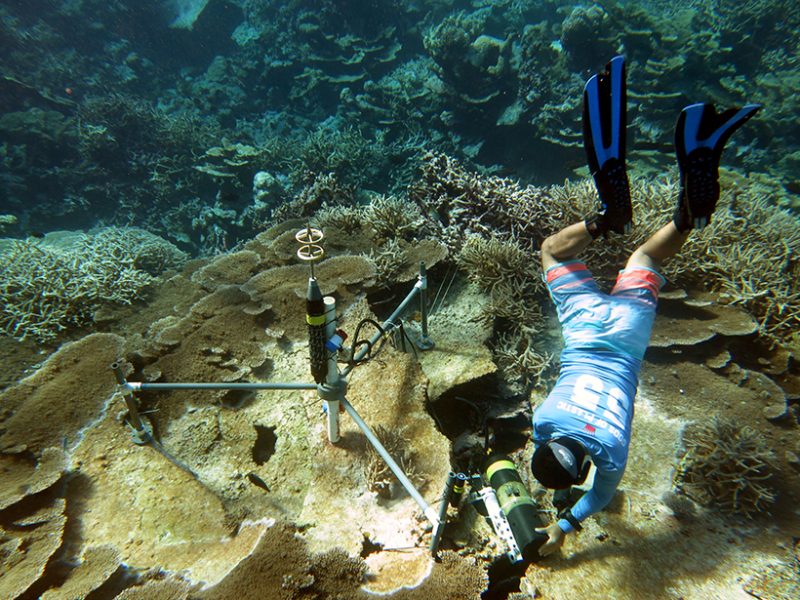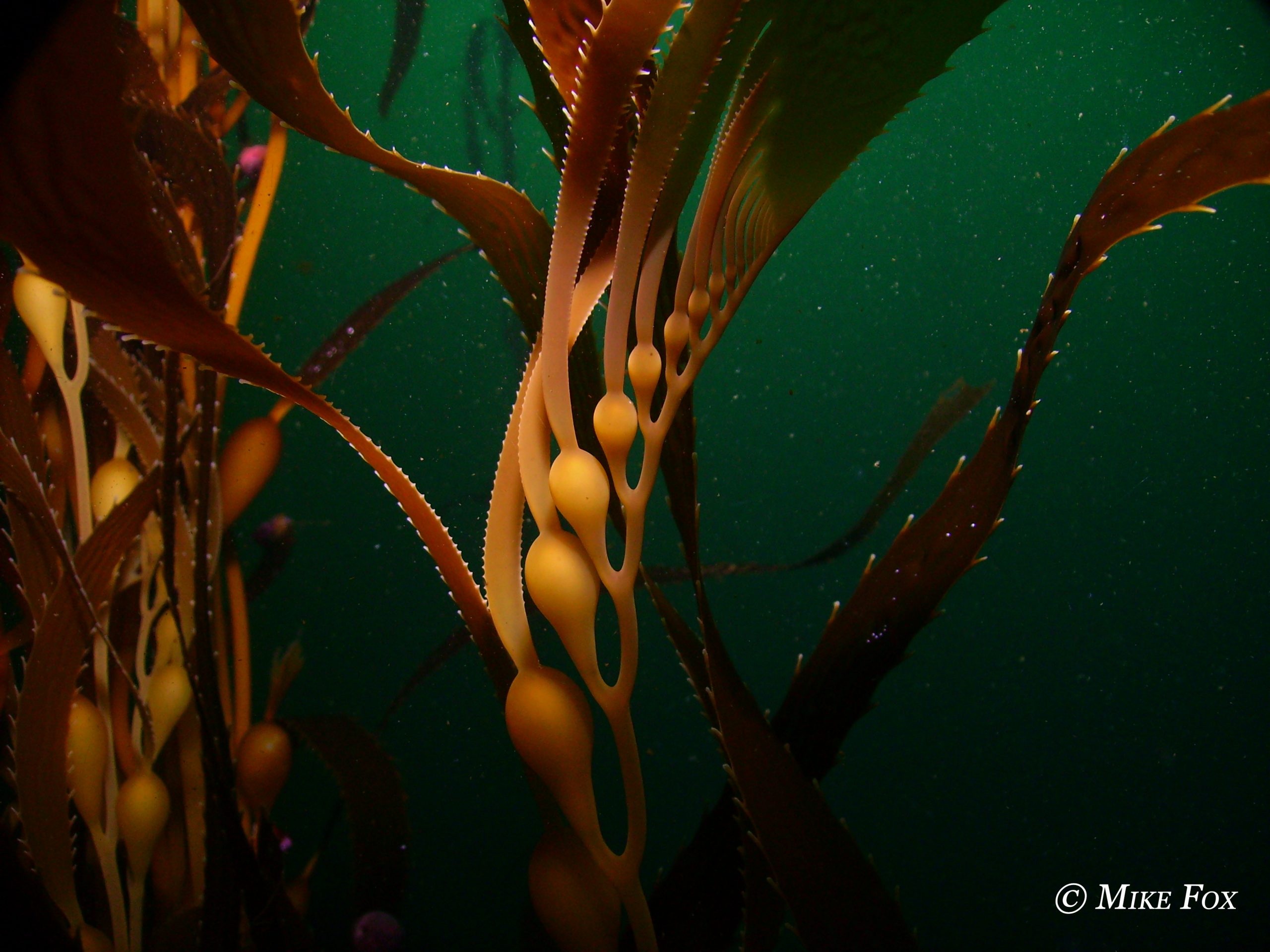A new paper published by Emily Kelly and colleagues explains how we can balance the energetic budget on Hawaiian coral reefs through herbivore management and protection. Herbivores on coral reefs play an important role in controlling algal growth, but in systems where density of herbivores is low, algae can grow at a faster rate than they are consumed, resulting in a … Read More
Curious about the “100 Island Challenge”? Check out this article to learn more!
The 100 Island Challenge is a collaborative project led by Dr. Stuart Sandin’s lab, co-led by Dr. Jen Smith, that aims to work with partners worldwide to assess reef health in a holistic way that is comparable across all sites. News Deeply recently interviewed Dr. Smith to learn more about the goals of the 100 Island Challenge in assessing reef … Read More
Smith lab & colleagues publish new paper looking at zooplankton on coral reefs
Most coral reef scientists study charismatic organisms, such as corals and fish, while very few scientists focus on plankton. Since coral reefs have an abundance of beautiful and colorful creatures, small and inconspicuous plankton may be less attractive to many coral reef scientists. Of the few existing coral reef plankton studies, most of them are either bacterioplankton or phytoplankton, which are “relatively” … Read More
Smith Lab & colleagues march (& swim) for science on Earth Day 2017!
This year on Earth Day (4/22/17) scientists, researchers, and science-supporters marched in 600 cities worldwide to show support for scientific research and scientifically informed public policies. During the Science March Dr. Jennifer Smith was conducting field research in Maui Nui along with Smith Lab members Dr. Emily Kelly and Samantha Clements, and Sandin Lab researcher, Nicole Pedersen, to collect coral reef … Read More
Citizen-supported science in the Gulf of Maine
Dr. Walter Adey has dedicated his career to studying the importance of seaweeds in the marine ecosystems of the Northwest Atlantic. Walter first surveyed the benthic communities of the Gulf of Maine fifty years ago. In the wake of the collapse of the famed New England cod fishery and half a century of climate change, the Gulf of Maine is … Read More
What are scientists saying about the fate of the Great Barrier Reef?
This week PBS interviewed scientists, including Dr. Jennifer Smith, about the effects of climate change on the health of the Great Barrier Reef. Click here to learn more about the science behind global warming and coral bleaching and what actions you can take daily to help preserve coral reefs!
Ever wondered about the coral reef ecologist’s tools of the trade?
Popular Science recently interviewed Dr. Emily Kelly about the essential tools of an underwater researcher, including waterproof paper, coolers, and even surgical equipment. Click here to read more!
American Geophysical Union (AGU) Eos article spotlights the Benthic Ecosystem and Acidification Measurements System (BEAMS) developed by a team of Scripps researchers
A paper published in 2016 by Scripps researchers, including some Smith Lab members, was recently featured in an American Geophysical Union (AGU) Eos article. The article spotlights the Benthic Ecosystem and Acidification Monitoring System (BEAMS) & its role in assessing reef health. Click here to see the full article!
A new study highlights the importance of surface biomass in the growth and recovery of giant kelp
Giant kelp is one of the largest and fastest growing organisms on the planet. Off the coast of California, this massive, golden-brown seaweed can reach heights of over 100 ft as it grows towards the well-lit surface waters. However, being this big can also have its disadvantages. Large waves can snap giant kelp fronds, removing biomass and sometimes even whole … Read More
Book chapter recently published explores the role of marine macrophytes in nearshore systems
Smith lab Ph.D. candidate, Mike Fox, contributed to a book chapter recently published by colleagues in Marine Macrophytes as Foundation Species that explores the role of marine macrophytes as a source of energy and habitat for nearshore systems. A description of the chapter is below: Foundation species disproportionately contribute energy and habitat to ecosystems and thus directly facilitate the … Read More

